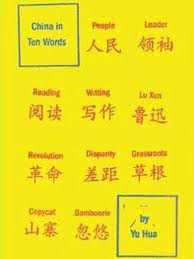 |
| "The Cremator" directed by the Chinese Peng Tao |
Censorship, in some form or the other, exists in all countries, with perhaps the exception of culturally progressive nations of Europe and Scandinavia.
Chinese authorities censor films on grounds of violence, sex and nudity. However, films like Peng Tao's "The Cremator" also risk being censored and/or banned because of its subject matter.
"The Cremator" explores the real-life Chinese custom of “ghost marriages — matchmaking for the dead to ward off loneliness in the afterlife, a practice that still occurs in some parts of rural China. The movie follows an unassuming undertaker who helps facilitate ghost marriages for cash in his poor town. When he faces a terminal illness, the undertaker makes his own ghost bride from a pretty young woman’s unclaimed corpse. But real life interjects in the form of his dead bride-to-be’s living sister, and the undertaker has a strange relationship with the sister.
It's love at first sight for me personally when I read of such stories. But for Chinese authorities, the film may be foregrounding superstition that has always been a particular anathema of the Communist establishment in China.
